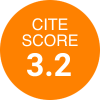
Topic: Microvascular Invasion and Postoperative Recurrence in Hepatocellular Carcinoma: From Mechanisms to Clinical Interventions
A Special Issue of Hepatoma Research
ISSN 2454-2520 (Online) 2394-5079 (Print)
Submission deadline: 25 Jun 2025
Guest Editors
Special Issue Introduction
Despite significant advances in the comprehensive treatment of hepatocellular carcinoma (HCC), postoperative recurrence remains a critical challenge that adversely affects long-term patient survival. Clinical studies consistently demonstrate that microvascular invasion (MVI) serves as a critical prognostic indicator in hepatocellular carcinoma. It not only predicts elevated risks of local tumor dissemination and distant metastasis but also correlates significantly with surgical margin status and specific recurrence patterns. These dual impacts establish MVI as a pivotal factor in both postoperative prognosis assessment and personalized therapeutic strategy formulation. Currently, standardized methods for MVI detection are lacking, and many unresolved questions persist regarding its molecular mechanisms and intrinsic relationship with recurrence.
Concurrently, advancements in deep learning and multimodal data analysis techniques have opened new avenues for integrating imaging, pathology, molecular profiling, and clinical information into precise predictive models. This integration promises to significantly enhance the accuracy of preoperative risk assessment and postoperative interventions. Accordingly, this special issue aims to address the critical issues surrounding MVI and postoperative recurrence by bridging basic mechanistic research with clinical applications, and by incorporating deep learning and multimodal methodologies to explore novel detection technologies and interventional strategies. The objective is to provide robust scientific evidence and practical guidance for optimizing HCC treatment regimens and improving patient survival.
We cordially invite submissions from scholars with innovative contributions in this field, covering a wide range of topics including basic research, clinical trials, as well as retrospective and prospective studies.
Potential topics include, but are not limited to:
- The molecular mechanisms of MVI and its role in HCC recurrence
- Machine learning or deep learning predictive models based on MVI-related molecular markers
- Non-invasive MVI detection techniques leveraging multi-omics approaches
- Applications of machine learning for the quantitative assessment of MVI in pathological images
- Investigations into the association between MVI and patterns of local postoperative recurrence
- The role of circulating tumor cells (CTCs) in MVI and recurrence
- Deep learning analyses of dynamic changes in the immunological microenvironment in liver cancer related to MVI
- Explorations of 3D in vitro models and multimodal simulations in MVI mechanism research
- Deep learning-based analysis of surgical margins and risk assessment for local recurrence
- Clinical applications of neoadjuvant therapies in reducing MVI incidence and preventing postoperative recurrence
- Multimodal investigations of MVI-related signaling pathways and their targeted interventional strategies
- Applications of multimodal data-driven deep learning algorithms in the quantitative analysis of MVI
- Personalized adjuvant therapy studies for patients at high risk for MVI
- The role of multidisciplinary comprehensive management and multimodal diagnostic and therapeutic strategies in preventing HCC recurrence
Submission Deadline
Submission Information
For Author Instructions, please refer to https://www.oaepublish.com/hr/author_instructions
For Online Submission, please login at https://www.oaecenter.com/login?JournalId=hr&IssueId=hr25031510048
Submission Deadline: 25 Jun 2025
Contacts: Victoria Lee, Managing Editor, [email protected]








